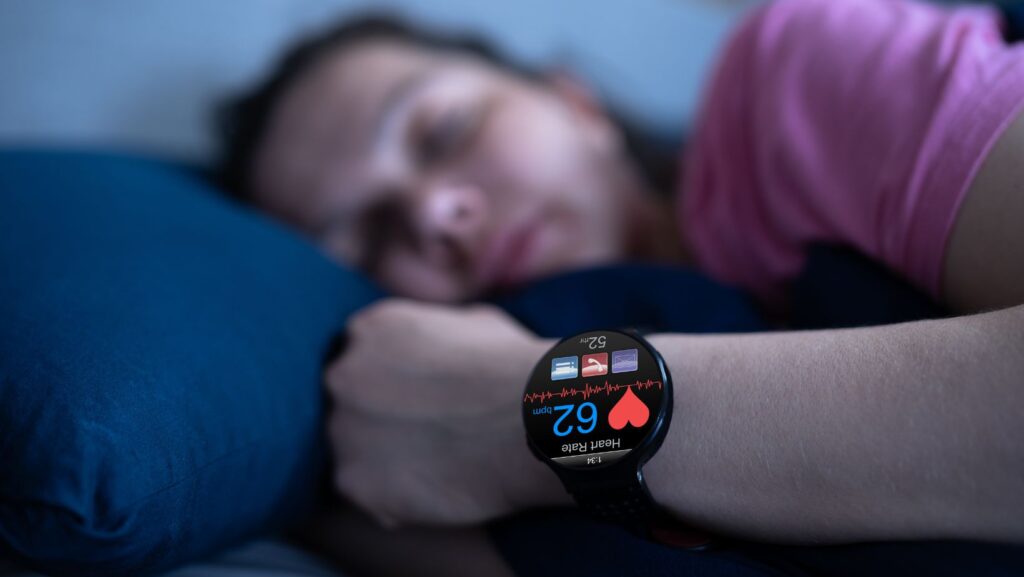College life can be exhausting. Students consistently push sleep to the bottom of their priority list due to late-night studying and early morning classes. Sleep deprivation affects your emotional state as well as your ability to remember things and maintain concentration while potentially lowering your academic performance. That’s where sleep-tracking gadgets come in. Sleep-tracking tools analyze your sleep patterns to provide actionable insights that help you change negative habits and improve restfulness. Good quality sleep leads to improved performance both in academic settings and daily routines. Sleep-tracking gadgets offer six methods to assist students in improving their academic performance.
Understand Your Sleep Patterns
Most people think that sleeping for eight hours ensures they’re well-rested. The quality of your sleep holds equal importance compared to the duration of your sleep. Sleep trackers analyze your sleep through stages like light sleep and deep sleep, as well as REM cycles and awakenings. Your sleep patterns reveal that the quality of your sleep may be lower than you assumed. Even though you stay in bed for 7 hours each night, you achieve only 5 hours of effective rest. Understanding your sleep patterns enables you to make adjustments that will improve your sleep quality and boost your energy levels for school.
Wake Up at the Right Time
Do you ever wake up feeling more exhausted after sleeping a full night than with only four hours of rest? Your alarm might be pulling you out of deep sleep which explains why you feel worse after a full night’s rest. Sleep-tracking devices with smart alarm functions wake you during light sleep stages to help you avoid feeling groggy.

The alarms evaluate your sleep pattern to select the optimal period within your set timeframe for waking you up. The result: The morning routine becomes more manageable with fewer snooze-button hits and improved concentration during the dreaded 8 a.m. class you originally didn’t want to enroll in.
Build Better Sleep Habits
Sleep-tracking devices include applications that provide personalized tips according to your sleep data. Simple changes such as going to bed earlier and not using screens before sleep can greatly enhance your daily well-being. The consistency helps, too. The evidence that shows you sleep better when you go to bed before midnight will help you maintain that routine. The sustained regularity in your sleep pattern enhances your emotional well-being while improving memory function and sustaining lecture alertness.
Some gadgets even offer daily reports and sleep scores to show your progress. These reminders nudge you toward better routines, making it easier to avoid all-nighters and last-minute cram sessions. And hey, it’s no surprise that students who are overwhelmed with schoolwork sometimes think, “Can someone write my essay?” When your brain is running on fumes, everything feels harder. Sleep helps take the edge off that pressure.
Improve Focus and Memory
The quality of your sleep is directly linked to your brain’s ability to store and process new information. When you experience poor sleep your capacity for maintaining focus and solving problems diminishes. Students who manage multiple responsibilities, such as classes and jobs, face the most significant challenges with sleep quality. Sleep trackers reveal sleep patterns that negatively impact your concentration ability. Your sleep pattern may lack sufficient deep sleep, or you might experience frequent awakenings at night. Knowing the cause of poor performance enables you to address it, which results in improved cognitive functions and better exam results through reduced errors.
Track What Affects Your Sleep
Sleep-tracking apps offer great utility through their functionality that allows users to record daily activities that could disrupt their sleep patterns. Nighttime caffeine consumption, together with exam-related stress and excessive phone scrolling, all influence sleep quality. With some sleep-tracking apps, you can take notes, which enables you to identify patterns between your activities and your sleep quality over time.

Here are a few things you can track to improve your sleep:
- What time do you eat dinner
- How much caffeine you drank
- Screen time before bed
- How late you studied
- Exercise or physical activity
Manage Stress More Effectively
College stress is real. The combination of exams, deadlines, social pressures, and distance from home negatively impacts students. Lack of sleep makes it worse. Reduced sleep makes stress harder to manage, and increased stress makes it more difficult to fall asleep. It’s a vicious cycle. Sleep trackers provide notifications when stress is negatively affecting your sleep quality. These sleep trackers have options for guided breathing exercises along with meditation sessions and soothing sounds to assist in relaxation. Improving your sleep quality establishes a more resilient mental state enabling you to handle all the challenges that school presents.
Better Sleep = Better Grades
Students must prioritize sleep because it serves as a fundamental necessity for managing their academic responsibilities. Sleep-tracking devices won’t fix every problem you face, but they provide essential insights to improve your sleep quality while helping you think more clearly and feel better in control. Your budget does not need to be very high to purchase effective sleep-tracking tools. Basic sleep applications and economical trackers can create substantial improvements. Perhaps you need to monitor your sleep habits since you’re struggling with fatigue and falling asleep during class sessions. Your grades – and your brain – will thank you.

